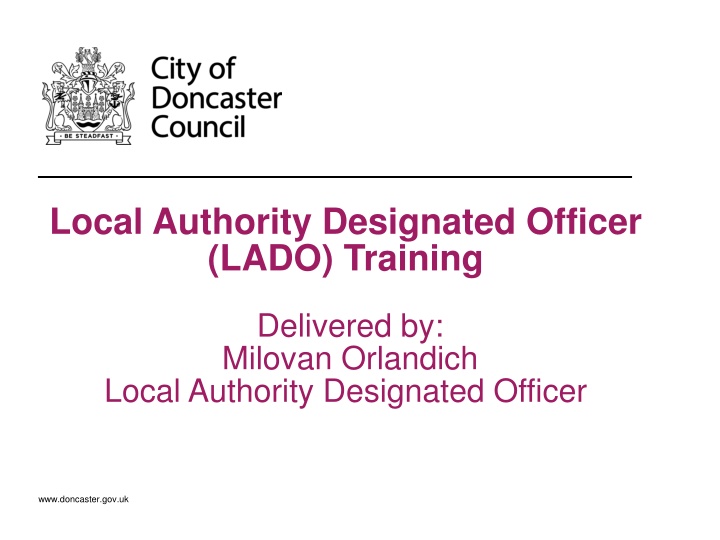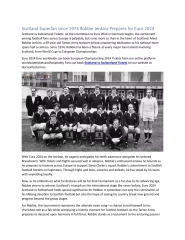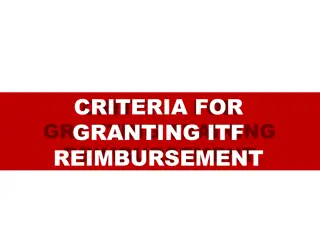
Understanding Local Authority Designated Officer (LADO) Training & Responsibilities
Enhance your knowledge on Local Authority Designated Officer (LADO) training, including procedures for managing allegations against staff, understanding the LADO process, key responsibilities, and what constitutes harm towards children. Gain insights into safeguarding measures and the role of the LADO in safeguarding children effectively.
Download Presentation

Please find below an Image/Link to download the presentation.
The content on the website is provided AS IS for your information and personal use only. It may not be sold, licensed, or shared on other websites without obtaining consent from the author. If you encounter any issues during the download, it is possible that the publisher has removed the file from their server.
You are allowed to download the files provided on this website for personal or commercial use, subject to the condition that they are used lawfully. All files are the property of their respective owners.
The content on the website is provided AS IS for your information and personal use only. It may not be sold, licensed, or shared on other websites without obtaining consent from the author.
E N D
Presentation Transcript
Local Authority Designated Officer (LADO) Training Delivered by: Milovan Orlandich Local Authority Designated Officer www.doncaster.gov.uk
Learning Outcomes By the end of this course, participants will: Understand the procedures governing the managing of allegations against staff, carers and volunteers as outlined in the Doncaster Child Protection Procedures. Understand the LADO processes in responding to and investigating when allegations have been made against a member of staff or volunteer. Understand the role of the Local Authority Designated Officer (LADO) and when to involve them. Know what to do if you think a member of staff, carer or volunteer has harmed or may harm a child or is unsuitable to be working with children. Be proficient in dealing with allegations and engaging with local statutory agencies during the allegation process. Have a greater understanding of the differences between low level concerns and allegations of a safeguarding nature. Understand the implications and actions following a completed LADO investigation on an individual and organisational level. Page 2 www.doncaster.gov.uk
Role of the LADO The role of the Local Authority Designated Officer (LADO) is set out in the HM Government guidance People in positions of trust Working Together to Safeguard Children (2023). The LADO works within Children s Services and should be alerted to all cases in which it is alleged that a person who works with children has: Behaved in a way that has harmed, or may have harmed, a child. Possibly committed a criminal offence against children, or related to a child. Behaved towards a child or children in a way that indicates they may pose risk of harm to children (transferable risk). Behaved or may have behaved in a way that indicates they may not be suitable to work with children. Page 3 www.doncaster.gov.uk
Key LADO responsibilities Provide advice and guidance to employers and/or voluntary organisations, including advising on interim safeguarding measures. Chair LADO Allegation & Evaluation Meetings. Liaise with Police and other agencies including Ofsted and professional bodies, such as the General Medical Council and the Teaching Regulation Agency. Monitor the progress of referrals to ensure they are dealt with as quickly as possible, consistent with a thorough and fair process. Seek to resolve any inter-agency issues. Collect data and maintain a confidential database in relation to allegations. Disseminate learning from LADO enquiries throughout the children s workforce. Ensure referrals are made in connection to any child to appropriate Local Authorities as needed. Page 4 www.doncaster.gov.uk
What Constitutes Harm? A school Teacher pushes a child into a wall. A Foster Carer shouts at a child. A Social Worker s own children are placed on a Child Protection Plan for neglect. A Football Coach is arrested for downloading indecent images of children. A hospital Doctor is arrested for domestic abuse against his wife. Page 5 www.doncaster.gov.uk
Low Level Concerns Low level concerns relate to an incidence of behaviour or an act of misconduct that may happen in a setting, for which the young person involved is not significantly harmed. A low level concern as an isolated incident may not meet the LADO referral threshold but repeated low level concerns over a period of time for an individual would require a discussion with LADO. If in doubt, always refer! Page 6 www.doncaster.gov.uk
Who Does LADO Cover? Please give examples .. Who Does LADO Not Cover? Please give examples .. Page 7 www.doncaster.gov.uk
Page 8 www.doncaster.gov.uk
Why do allegations arise? Poor practice. Organisational culture. Failure to follow procedure. Unintentional or accidental action. Behaviour misinterpreted. Use of physical restraint (authorised and unauthorised). False allegation. Malicious intent. Deliberate intention to abuse. Page 9 www.doncaster.gov.uk
LADO Process Map Allegation identified in organisation to be shared with Senior Manager LADO contact and Referral form submitted 24 Hours Contact/ Referral LADO responds to referrer in writing / email within 1 working day to advise who will be progressing referral. 1 Working day LADO PROCESS LADO Gathers Information Review documentation and consult LADO systems. May request agency to complete initial fact LADO Evaluation meeting Initial LADO Allegation meeting Consultation NFA To consider whether the concerns have reached the threshold to hold an allegation meeting Close and write up and provide written outcome to referrer. Ensure all appropriate agencies invited. 10 Working days Review Allegation Meeting. Within 4 6 weeks of Initial meeting unless clear reason for extending this Subsequent Meetings until there is an outcome of the LADO process Within 4 - 6 weeks of last LADO allegation review meeting Unless there is a clear reason for extending this (extensions to be agreed with the service manager, and this to be clearly recorded) Page 10 www.doncaster.gov.uk
Things to Consider Information should not be disclosed to the LADO subject until discussions have taken place with the LADO, the police and / or LA children's social care, as this may hinder investigations (but there might be children which need protecting so same day discussions are needed). Employers also should not commence an internal investigation/disciplinary process until having a discussion with the LADO. Interim safeguarding arrangements will need to be discussed with the LADO, i.e. suspension, monitoring. The final decision is the responsibility of the employer in conjunction with their HR representative. The LADO will normally chair the LADO Allegation/Evaluation Meeting and the participants should be sufficiently senior to contribute all relevant available information about the allegation, child and accused person and make decisions on behalf of their agencies. Page 11 www.doncaster.gov.uk
Three Strands There may be up to 3 strands when considering a concern or an allegation: A Police investigation of a criminal offence. Enquiries and assessment by Children's Services to ascertain whether a child or young person is in need of protection or is in need of services. Consideration by an employer of disciplinary action in respect of the individual. Page 12 www.doncaster.gov.uk
Childrens Services Role Whilst the LADO is part of children s services they monitor, review and follow the concerns and issues relating to the adult with whom the concerns relate. LADO will check that referrals have been made for any child where allegations have been made. Children s Services need to follow safeguarding procedures Concerns which HAVE to be considered: Does the adult under investigation have access / contact with other children? i.e. if they are a teacher and suspended during investigation, does the adult have their own children who may be at risk? An allegation of abuse MUST be followed up in the same manner as ANY allegation and within the same timescale. Page 13 www.doncaster.gov.uk
Key Considerations Information sharing / Confidentiality Supporting those involved Timescales / Monitoring progress Action to be taken during investigation and on conclusion Record keeping Learning lessons Page 14 www.doncaster.gov.uk
LADO Outcomes At the final LADO meeting an outcome will be agreed. It is important that the correct definitions are used when determining outcomes. Substantiated There is sufficient identifiable evidence to prove the allegation. Unsubstantiated There is insufficient evidence to neither prove nor disprove the allegation. The term, therefore, does not imply guilt or innocence. False: - There is sufficient evidence to disprove the allegation. Malicious there is sufficient evidence to disprove the allegation and there has been a deliberate act to deceive. Page 15 www.doncaster.gov.uk
Following a Substantiated LADO Outcome The LADO outcome is shared with the subject employer s responsibility. Internal Investigation. Disciplinary Process. Police Investigation. DBS Referral. Referral to Regulatory Bodies, for e.g. SWE, GMC, NMC, TRA. Page 16 www.doncaster.gov.uk
Overview Safeguarding is EVERYONE's responsibility Don t do nothing! We have to ensure all children are considered, we have a duty to ALL children, not just those in Doncaster but children regionally, nationally and internationally. When concerns are raised about an adult we have to consider all children we know they are in contact with. Don t Skip the LADO process. You may have to educate your HR Reps. Don t compromise a potential Police Investigation. Even if the person leaves their role prior to an internal investigation outcome, the process needs to be formally concluded. Page 17 www.doncaster.gov.uk
Thank you Any questions ? Contact details and useful information: LADO Tel: 01302 737332 Email: LADO@doncaster.gov.uk Doncaster Safeguarding Children Partnership (DSCP) Procedure for Allegations Against Staff, Carers and Volunteers: Responding to Allegations Against Staff, Carers or Volunteers (proceduresonline.com) Keeping children safe in education - GOV.UK (www.gov.uk) Working together to safeguard children - GOV.UK (www.gov.uk) Page 18 www.doncaster.gov.uk






















